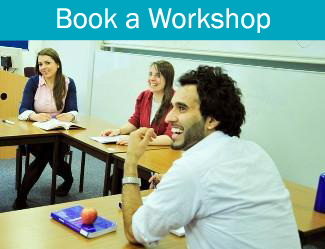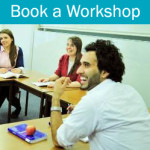ACADEMICS AND TV DOCUMENTARY-MAKING
A WORKSHOP for CARDIFF UNIVERSITY GRADUATE COLLEGE
11TH February
This is the fourth year I’ve presented this 3-hour workshop. I designed it as a contribution towards bridging the gap between the media and academia. I believe it still to be an unusual offer amongst university training because media training offered to academics is usually in the area of short-form and news-related input, not in long-form documentary. Between these two forms there are significant differences in working practice for journalists and, from the academics’ perspective, the skills needed to have a happy time as a contributor to a documentary are different to those that will produce a snappy sound-bite.
Academia and the media are two worlds which can intersect very fruitfully. However, when they don’t understand each other’s priorities and practices there are sometimes tears before bedtime.
The workshop is designed to examine key aspects of both worlds: what do they value? what do they want? what are they for? Where do these overlap and where must one recognise that they differ?
The issue of expertise is central. What can one world give to the other?
Participants are encouraged to consider why they are interested in getting their knowledge onto television. Who do they want to reach? We consider what the medium does well and what it struggles with.
A case history is offered of a complex factual series, taking participants behind the scenes to get an idea of the many types of television expertise needed to create the final programmes.
We look at the various roles that academics can take in documentary-making. An overview is offered of channel identities and the commissioning system.
At least an hour is spent having a go at writing a television proposal and examples of professional proposals are offered, along with advice on finding the right production company and a few tips on contractual and financial matters.
It’s a packed three hours. With a 98% satisfaction rate for this year’s group (7 people from 5 academic schools) I am confident that it’s felt to be time well-spent.
The great pleasure I get is to see people who are passionate about their subject grasp how that subject might look from a journalist’s point of view. The subject’s potential to engage a wide audience comes alive and is shared – even for a few minutes. Now what could we do if we had lights, a camera and locations!
Selection of comments from participants:
- Practical examples and information (video, hand-outs, writing, multimedia)
- Straight forwardness
- Expert opinion and willingness to help beginners
- Lots of ideas and inspiring – lets you go away and think about it. The tutor was very experienced and had a great manner
- Very interesting – good to see good and bad examples
- Proposal writing was the best thing
- It provides a broad overview and gave time to try and apply skills learnt
- How would you describe this workshop to a friend considering doing it?
- Highly recommended! There’s not enough communication between academics and media/arts and both would benefit from the experience
- Gives a good overview of the process behind the TV work
- Useful practical advice
- Definitely do it if you are interested in the subject
- Definitely worth considering if they have an idea for a TV programme
- Very informative
- Good entry point into explaining academic work into the television area and beyond

